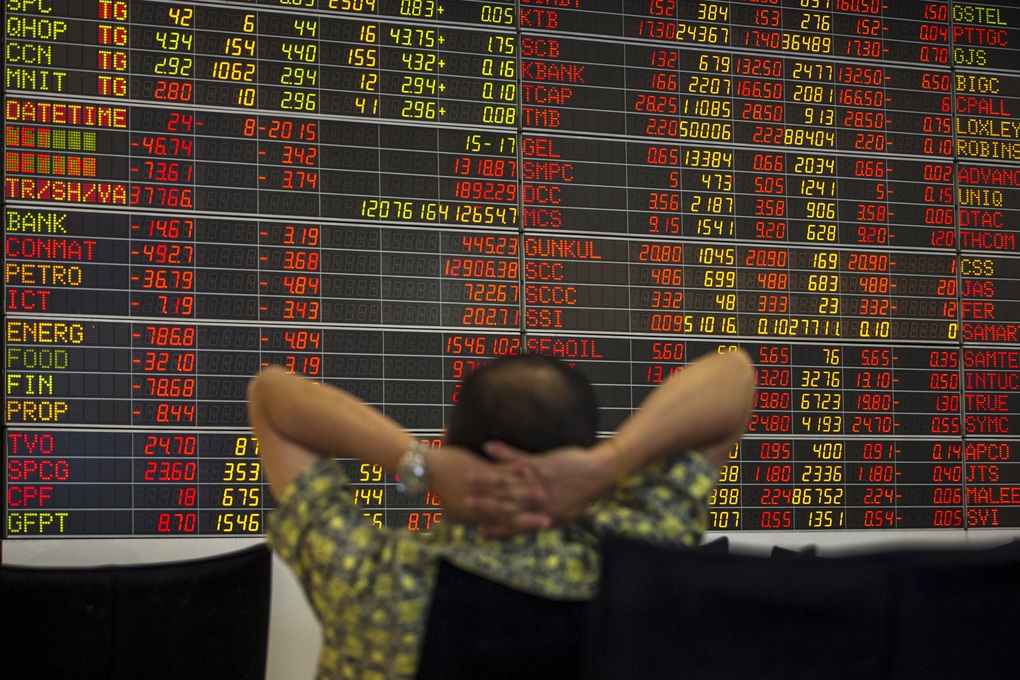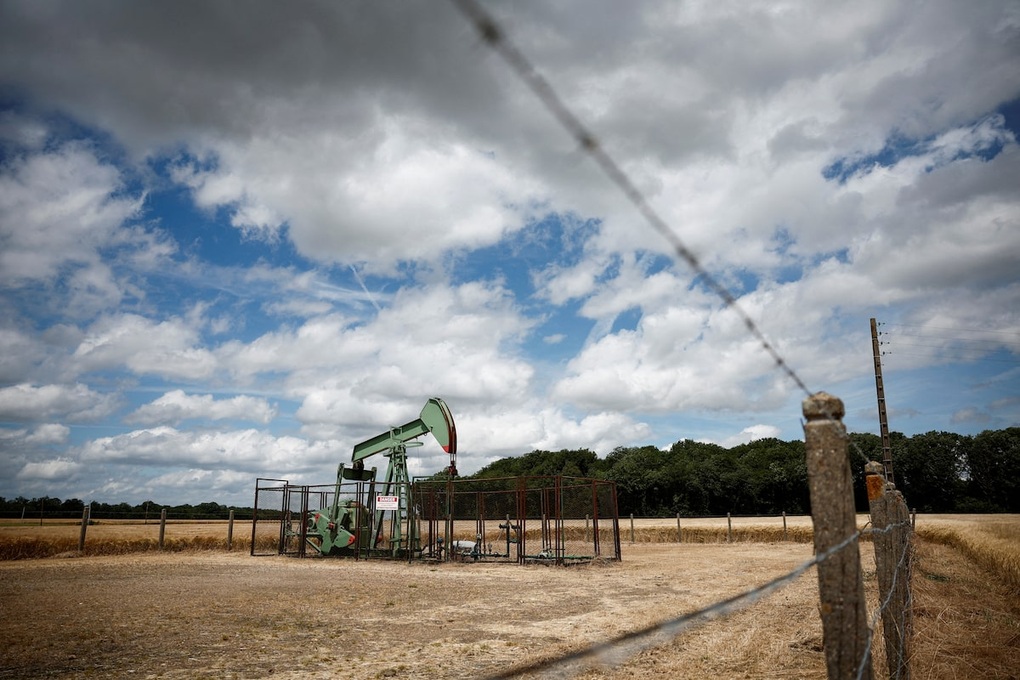Asian stocks "on fire"
Opening the morning session on June 19, Asia- Pacific stock markets fell across the board, as investors were cautious about the US Federal Reserve's decision to keep interest rates unchanged and closely monitored the developments in tensions between Israel and Iran.
In Japan, the Nikkei 225 fell 0.74%, while the Topix lost 0.61%. In South Korea, the Kospi fell 0.34% and the Kosdaq was almost flat. The Australian market (S&P/ASX 200) and mainland China's CSI 300 were also little changed. Hong Kong's Hang Seng index (China) fell 0.48%.
Market sentiment was affected by the risk of military conflict in the Middle East, when US President Donald Trump convened the National Security Council for the second time in two days to consider launching an attack on Iran. The meeting took place in the White House Situation Room on the evening of June 18 (US time), according to NBC News.

Asian stock market indexes fell on the morning of June 19 (Photo: Reuters).
The Fed previously decided to keep its benchmark interest rate at 4.25%-4.5%, a level it has maintained since December last year. Fed Chairman Jerome Powell said the agency will continue to monitor the impact of new tariffs imposed by the Trump administration on inflation before making further adjustments to monetary policy. However, the Fed still signaled the possibility of cutting interest rates twice this year.
Sahak Manuelian, global head of equity trading at Wedbush Securities (USA), said that Mr. Powell's message was not much different from previous times. Inflation remains high, but tariffs in the next few months will be an unpredictable variable.
“He said if it weren’t for the tariffs, the Fed would have cut rates right now,” said Mr. Sahak.
On Wall Street last night, major indexes had mixed performances. The Dow Jones Industrial Average fell 44.14 points, or 0.10%, to 42,171.66. The S&P 500 was almost flat, down 0.03%, to 5,980.87, while the Nasdaq Composite edged up 0.13%, to 19,546.27.
Oil prices turn down slightly
World oil prices fell in the morning session of June 19 as investors were cautious about unclear statements by US President Donald Trump regarding the possibility of US involvement in the conflict between Israel and Iran.
Updated at 8:10 a.m. (Vietnam time), Brent crude oil for monthly delivery fell 37 cents, or 0.48%, to $76.33 per barrel. US WTI crude oil for July delivery also fell 28 cents, or 0.37%, to $74.86 per barrel.
The more liquid August contract was down 21 cents, or 0.29%, at $73.29 a barrel.
According to Mr. Tony Sycamore, market analyst at IG Markets (online trading platform in the UK), the market is still reflecting the price with risk factors as investors wait for the next step in the tension between Israel and Iran.
If the US launches a military strike, oil prices could rise by about $5 per barrel. Conversely, if the parties enter into peace talks, oil prices could fall by the same amount.
US President Donald Trump told reporters on June 18 that he may or may not join Israel in attacks on Iran.

World oil prices fell slightly in the morning session of June 19 (Photo: Reuters).
Many experts warn that if the US officially enters the war, tensions will spread and increase the risk of disruption to energy facilities in the region.
Iran is the third largest oil producer in the Organization of the Petroleum Exporting Countries, producing about 3.3 million barrels per day. Notably, up to 19 million barrels of oil and petroleum products are transported every day through the Strait of Hormuz, a strategic shipping route that could be severely affected if hostilities escalate.
In addition to geopolitical factors, the oil market is also affected by US monetary policy. Low interest rates usually support economic growth and increase energy demand, but at the same time, they can increase inflationary pressures if commodity prices continue to rise.
Gold price lost the 3,400 USD/ounce mark
World gold prices edged up slightly in the morning trading session on June 19, supported by safe-haven demand as tensions in the Middle East continued. However, the US Federal Reserve's cautious stance on lowering interest rates somewhat curbed the precious metal's gains.
Updated at 9:15 a.m., spot gold prices rose 0.2% to $3,376 an ounce. Meanwhile, US gold futures fell 0.4% to $3,393 an ounce.
Tim Waterer, chief market analyst at KCM Trade, said gold prices have recovered slightly as investors await the next developments in the conflict between Israel and Iran. If the US decides to get directly involved, this will increase geopolitical risks.
Matt Simpson, senior analyst at City Index, said the Fed did not send a strong policy easing message as expected. Chairman Powell was even more hawkish than expected. The US dollar now appears to be oversold, which could make it difficult for gold prices to rise sharply in the coming weeks.
Source: https://dantri.com.vn/kinh-doanh/cang-thang-trung-dong-chung-khoan-chau-a-dong-loat-giam-gia-dau-chung-lai-20250619104759304.htm





































































































Comment (0)